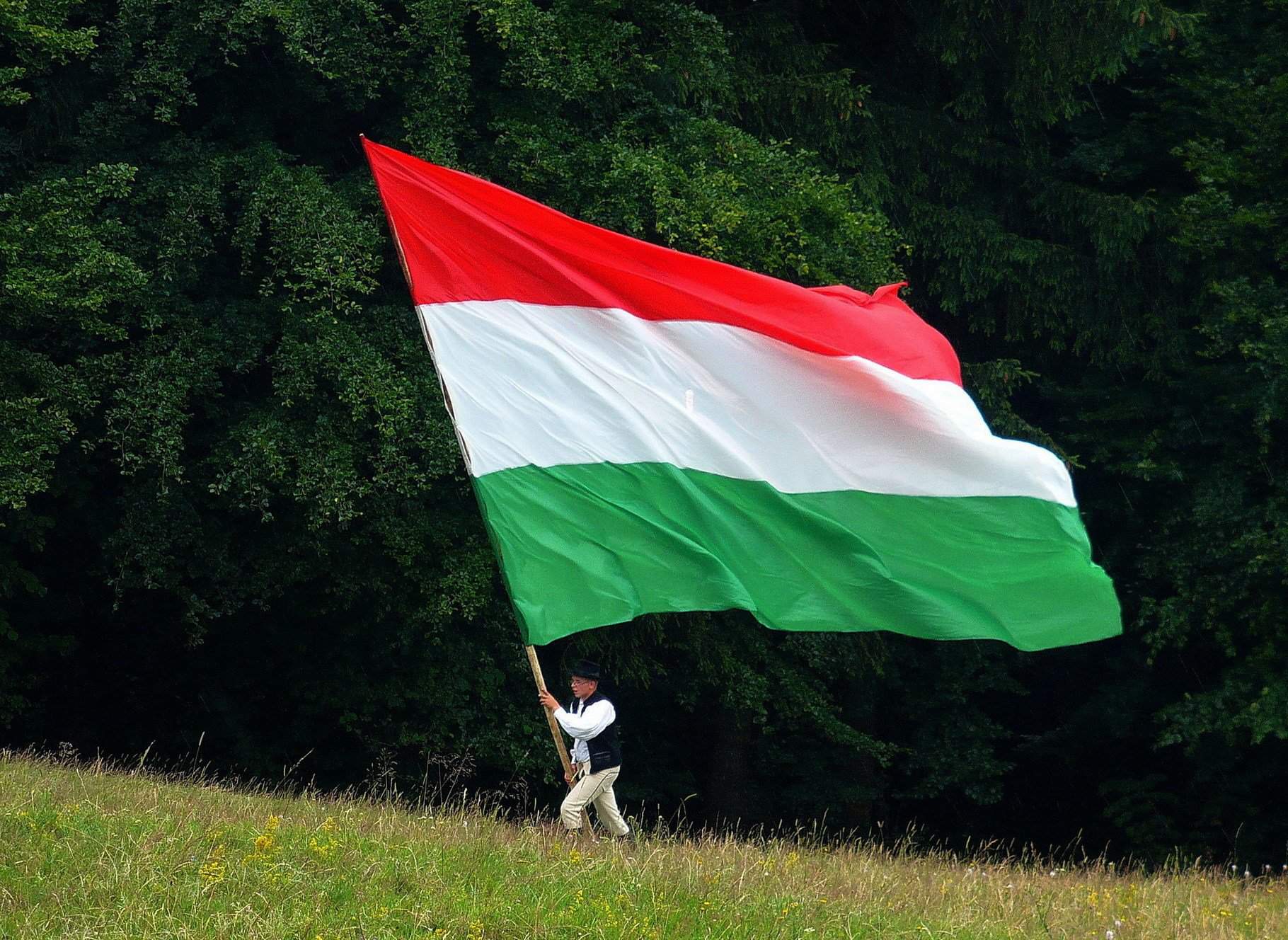Mini language lesson #1: Hungarian greetings and slang
Learning Hungarian can seem to be an impossible mission due to the endless variations of ending, grammatical rules, and exceptions. This is why we came up with the idea to start sharing mini language lessons with you, which might help you see things clearer. In this article we try to tackle some slang expressions connected to greetings, saying “thank you” and “you’re welcome”.
Keep in mind that we are not linguists in any way, we’re just as dazzled by the curiosities of the Hungarian language as foreigners are. So this series doesn’t aim to explain the etymology of words, it’s more a fun take on our language. We try to bring Hungarian closer to you with witty learning cards made by Daily magyar, a language-enthusiast person, whose posts give an insight into the complexity of the Hungarian grammar. But don’t worry, it’s all done in an easy-going way, so that it can make learning fun.
Even if you don’t think that this is the most efficient way of learning a quite complex language, you should take a look at our mini language lesson compilations, because they might make you smile and even brighten your day.
So let’s get down to business 🙂 In this article we bring you some slang expressions, mostly in the topic of greetings and basic sentences, like saying Thank you and You’re welcome. Besides the formal ways, it’s always good to know the slang expressions, because you’re more likely to hear them on the streets and in oral form than the nice, written forms.
Starting off with greetings, you probably heard Szia and Hello, however, Hungarians have a wide range of greetings to choose from. The basic greetings go like this:
Jó reggelt! [jˈoː rˈɛɡːɛlt] – Good morning!
Jó napot! [jˈoː nˈɑpot] – Good day! (cca Good afternoon!)
Jó estét! [jˈoː ˈɛʃteːt] – Good evening!
Szia! [sˈiɑ] – Hi! | Bye!
Szia, szia! [sˈiɑ sˈiɑ] – Bye, bye! – When pronouncing Szia!, think of the popular singer, Sia 😉
Üdv! [ˈydv] – Hi! | Greetings! | Welcome! (Üdvözöllek! Üdvözlégy!)
Helló! | Heló! [hˈɛloː] – Hi! | Bye!
Viszlát! – See you soon! (slang)
Viszontlátásra! – See you soon!; Bye!
But we have several other ways of saying Hello to each other. These could probably all be listed as slang versions:
Szió! [sˈioː] – Hi! (mainly used by girls)
Szióka! [sˈioːkɑ] – Hi! (mainly used by girls)
Hali! [hˈɑli] – Hi! | Bye!
Halihó! [hˈɑlihoː] – Hi! (mainly used by girls)
Hahó! [hˈɑhoː] – Hi!
Háj! [hɑːj] – Hi!
Szervusz! [sˈɛrvus] – Hi! | Bye!
Szevasz! [sˈɛvɑs] – Hi! | Bye! (slang)
Szeva! [sˈɛvɑ] – Hi! | Bye! (slang)
Szvsz! | Sws! – Hi! | Bye! (used in texting)
Szasz! [sˈɑs] – Hi! | Bye! (slang)
Csőváz! [tʃˈøːvaːz] – Hi! | Bye! (slang)
Csőváz. [tʃˈøːvaːz] – Tube frame. (original meaning)
Cső. [tʃˈøː] – Tube. | Pipe. (original meaning)
Cső! [tʃˈøː] – Hi! | Bye! (slang)
Cső, cső! [tʃˈøː tʃˈøː] – Bye, bye! (slang)
Csövi! [tʃˈøvi] – Hi! | Bye! (slang)
Csá! [tʃˈaː] – Hi! | Bye! (slang)
Csá, csá! [tʃˈaː tʃˈaː] – Bye, bye!
Csáó! [tʃˈaːoː] – Hi! | Bye! (slang)
Csákány! [tʃˈaːkaːɲ] – Hi! | Bye! (slang)
Csákány. [tʃˈaːkaːɲ] – Pickaxe. (original meaning)
Csumi! [tʃumi] – Hi! | Bye! (slang)
Csumidázlak! [tʃumidaːzlɑk] – Hi! (slang)
I also remember the time when it was cool to say Csöcs! and Csöcsi! both meaning boobs in English. Also, we used to combine short slang greetings into one nonsense sentence like Csá csumi csá csőtészta!.
Greeting more than one person:
Sziasztok! [sˈiɑstok] – Hi! | Bye!
Szervusztok! [sˈɛrvustok] – Hi! | Bye!
Szevasztok! [sˈɛvɑstok] – Hi! | Bye! (slang)
Szasztok! [sˈɑstok] – Hi! | Bye! (slang)
Csősztök! [tʃˈøːstøk] – Hi! | Bye! (slang)
Császtok! [tʃˈɑːstok] – Hi! | Bye! (slang)
Also, we shouldn’t forget about a greeting phrase that most kids learn the quickest:
The truth is, you could go on with even more gaudy and round expressions, but knowing the basic ones is perfectly enough for your everyday life in Hungary.
After you have greeted someone, you might want to ask them how they’re doing. The basic equivalent of How are you? is Hogy vagy? but there are several other ways of asking What’s up? in Hungarian. You could say
Hogy, s mint? – How and how?
Hogy, s mint vagy? – How and how are you?
Meg vagy? – Have you got you? Are you (alright)?
or any of the questions listed on the learning card below:
Next up, let’s tackle the question of Thank you and You’re welcome. As you can see, in these cases we have basic words and their shorter, longer forms.
Lastly, at the end of the day you might want to say Good night to somebody. You can do that by using one of the following expressions:
Jó éjszakát! – Good night!
Jó éjt! – Good night!
Jó éccakát! – Good night! (slang, dialect or bad grammar knowledge :D)
Jóccakát! – Good night! (slang)
Jóccak! – Good night! (slang)
Jó8! – Good night! (slang – used in writing) – the 8 here is pronounced as the English ‘eight’, which as pronounced sounds like ‘éjt’ 🙂
Nyugodalmas jó éjszakát! – May you have a peaceful good night! (fancy way)
Szép álmokat! – Sweet dreams!
Aludj jól! – Sleep well!
Well, the Hungarian language can get a bit weird in some cases, but you got to love the diversity. We hope you enjoyed this mini language lesson and you should check out Daily magyar’s posts until next time. He keeps you updated with creative learning cards. Sziasztok!
Photos: erdely.ma
Copy editor: bm
Source: Daily News Hungary
please make a donation here
Hot news
PHOTOS: Chinese mini library inaugurated, China very proud on Szeged BYD plant
New information and photos emerged of the American woman who went missing in Budapest
PM Orbán: Hungary’s aims in the American-Chinese conflict in line with the Americans’
Budapest just made public transport a whole lot friendlier for dog owners and cyclists
PHOTOS: President Zelensky visits Ukrainian school in Budapest, says ceasefire not a solution
VIDEO: How rude! Romanian President showed his back to PM Orbán for 20 seconds





2 Comments
Hello ,
Is it possible to park this pages on a seperate page every day? So we can come back and read it more than once. As we now have the problem that due to other posts and many adverts in facebook we don’t find quite easely. Is there a possibility to retrieve it later on? THanks for your answer
https://dailynewshungary.com/mini-language-lesson-1-hungarian-greetings-slang/